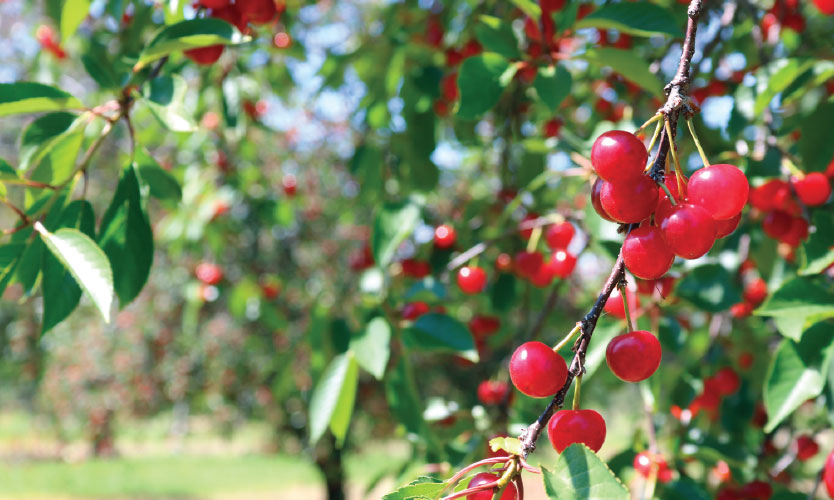As consumer eating habits and preferences change, agricultural and crop insurers are seeing a rise in demand for coverage for specialty crops.
And the traditionally stable insurance market for agricultural risks is seeing movement as some insurers and brokers expand their operations.
Agricultural and crop insurance is largely administered through a public-private partnership involving the U.S. Department of Agriculture and 13 private insurers that share risk through what is known as the standard reinsurance agreement, which allows the government to backstop roughly 80% of coverage.
While the USDA crop program is dominated by traditional commodities such as corn, wheat and soybeans, it has seen meaningful growth in the specialty crops. In addition, standard lines are applied to many aspects of the agricultural sector, from transportation to property.
The USDA ‘s Risk Management Agency has seen robust growth in its specialty crops programs, according to Richard Flournoy, the agency ‘s acting administrator, based in Kansas City, Missouri.
From 1990 to 2020, liabilities for insured specialty crops rose from $1 billion to more than $20 billion and liabilities for organic crops also saw significant growth (see box).
The growth in specialty crop insurance programs is a result of consumer trends toward the increased consumption of organic products. Organic food and nonfood product sales totaled $61.9 billion in 2020, breaking the $60 billion mark for the first time, according to the Organic Trade Association.
“Over time we ‘ve tried to expand outside those major crops, because you have a growing organic sector, you have a growing specialty crop sector. You have people who are more interested in eating fruits and vegetables. We ‘ve really tried to make an effort to tap into that more,” Mr. Flournoy said.
For example, the USDA RMA ‘s Whole-Farm Revenue Protection plan can help producers of smaller crops by providing a risk management safety net under an insurance policy for all commodities on a farm as opposed to a single commodity crop.
Producers purchased more than 2,000 such policies to protect $2.26 billion in liabilities in 2020, and the RMA is in the process of revising the plan to make it more flexible and accessible to producers beginning in crop year 2022.
The expansion in available coverage can help expand food production.
“As these types of coverages come online and provide risk protection for these farmers — a cherry farmer in Michigan, an avocado farmer in Florida — the farmer has more assurance to step into that field and produce that crop,” said Bob Haney, executive chairman of AgriSompo and CEO of AgriSompo North America, units of Sompo International Holdings Ltd. in Des Moines, Iowa.
Mr. Haney said he has seen more insurance inquiries from policyholders with specialty crops such as pistachios.
Lockton Cos. LLC has seen growth in the organics sector since it expanded its crop insurance division in 2018, said Ginny Olson, vice president and senior account executive, crop insurance, who joined the broker to help build the business. “My growth has been in the organics space,” she said.
In mid-October, broker Hub International Ltd. expanded in the California agricultural market, acquiring Fresno-based Jerry Baird Insurance Agency and Baird Crop Insurance Agency, which specialize in crop and commercial insurance, particularly in the agribusiness industry.
Sompo expanded further into the
agriculture sector with the December 2020 acquisition of Diversified Crop Insurance Services, a subsidiary of CGB Enterprises Inc.
Diversified was combined with ARMtech, Sompo ‘s existing federally sponsored multi-peril crop insurer, to operate under the brand-name AgriSompo North America with combined gross written premiums of over $2 billion.
Viable insurance for the organics industry is vital for its continued success both because of the industry ‘s relatively recent expansion compared with giant commodities, the added expenses for organic fertilizer and other issues, Ms. Olson said.
Bloomington, Minnesota-based Ryan Chartier, senior vice president, national agriculture practice leader, at USI Insurance Services LLC, joined the brokerage in 2018 when it bought the insurance operations of food products giant CHS Inc.
Mr. Chartier said his producers focus more on traditional insurance coverages for agricultural companies, such as property insurance for grain elevators, whether privately or cooperatively owned. In addition, directors and officers liability insurance for agricultural co-ops, which usually have boards, is a significant line, along with general liability and more industry-specific coverages such as stock throughput coverage and some product recall insurance.
Of the crop coverages sold by USI producers, many involve specialty crop insurance, he said.
<BR><HR><BR>
Cannabis and hemp coverage options expand to meet growing risks
The rapidly expanding cannabis and hemp sectors fit into the agricultural practice groups of some brokers and agricultural insurance organizations.
Cannabis is part of the agricultural practice at USI Insurance Services LLC, said Ryan Chartier, senior vice president and the brokerage ‘s national agriculture practice leader in Bloomington, Minnesota. The group has a few people who specialize in the coverage, he said.
While USI does not place insurance for cannabis crops, it does work with cannabis dispensaries, for which rates are beginning to moderate as experience and data related to the sector grow, he said.
“It ‘s actually a really good risk,” Mr. Chartier said of the dispensary business, because “it is so heavily compliance-driven by the government.”
The U.S. Department of Agriculture does not have any involvement with cannabis owing to the substance ‘s continued status as an illegal drug at the federal level. It does, however, insure hemp, which was legalized in the 2018 Farm Bill passed by Congress, according to Richard Flournoy, USDA Risk Management Agency acting administrator, based in Kansas City, Missouri.
“We insure hemp under the Whole-farm Revenue Protection [program],” Mr. Flournoy said, which is designed for smaller farms and insures the entire business entity rather than individual crops.



